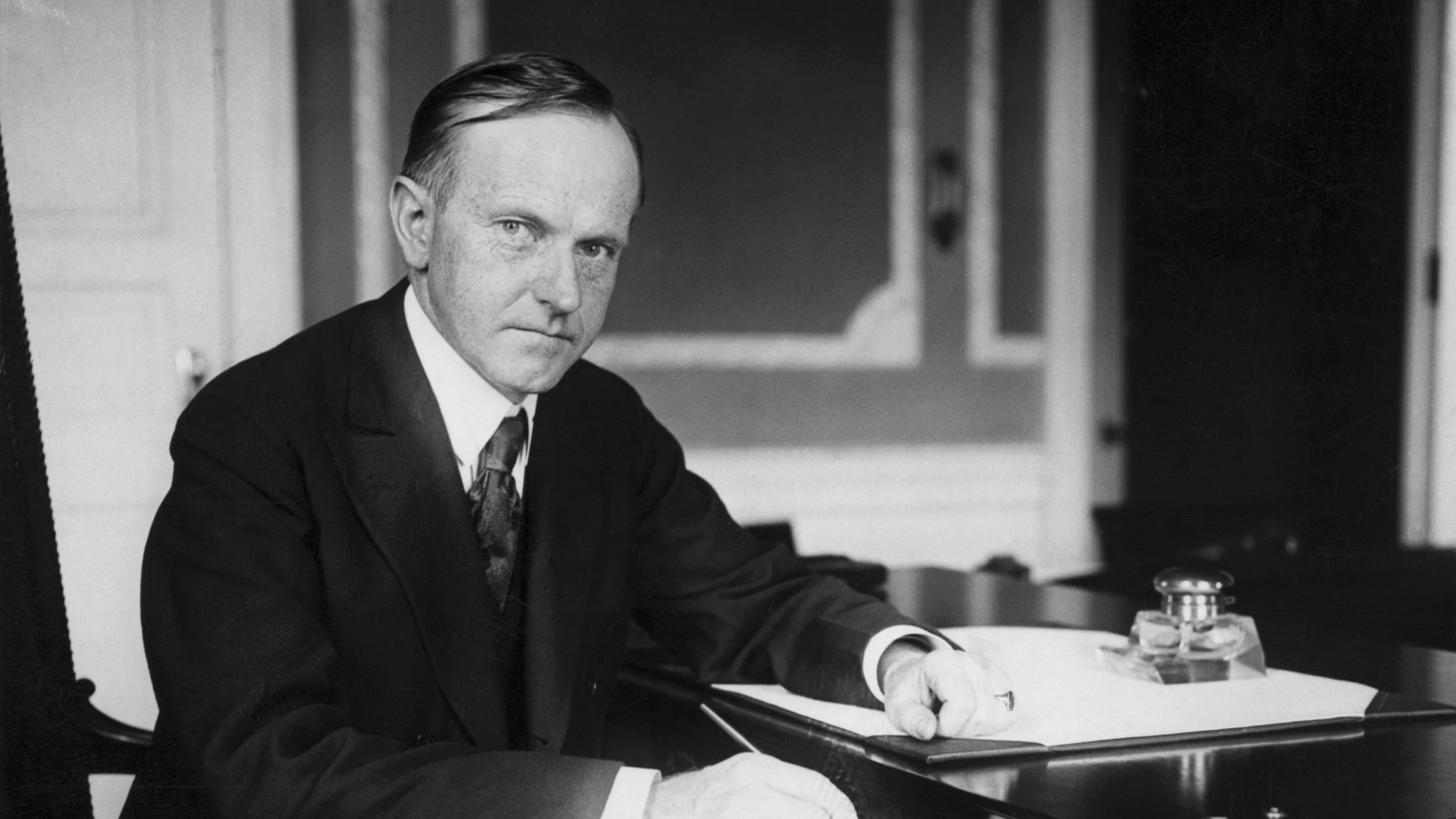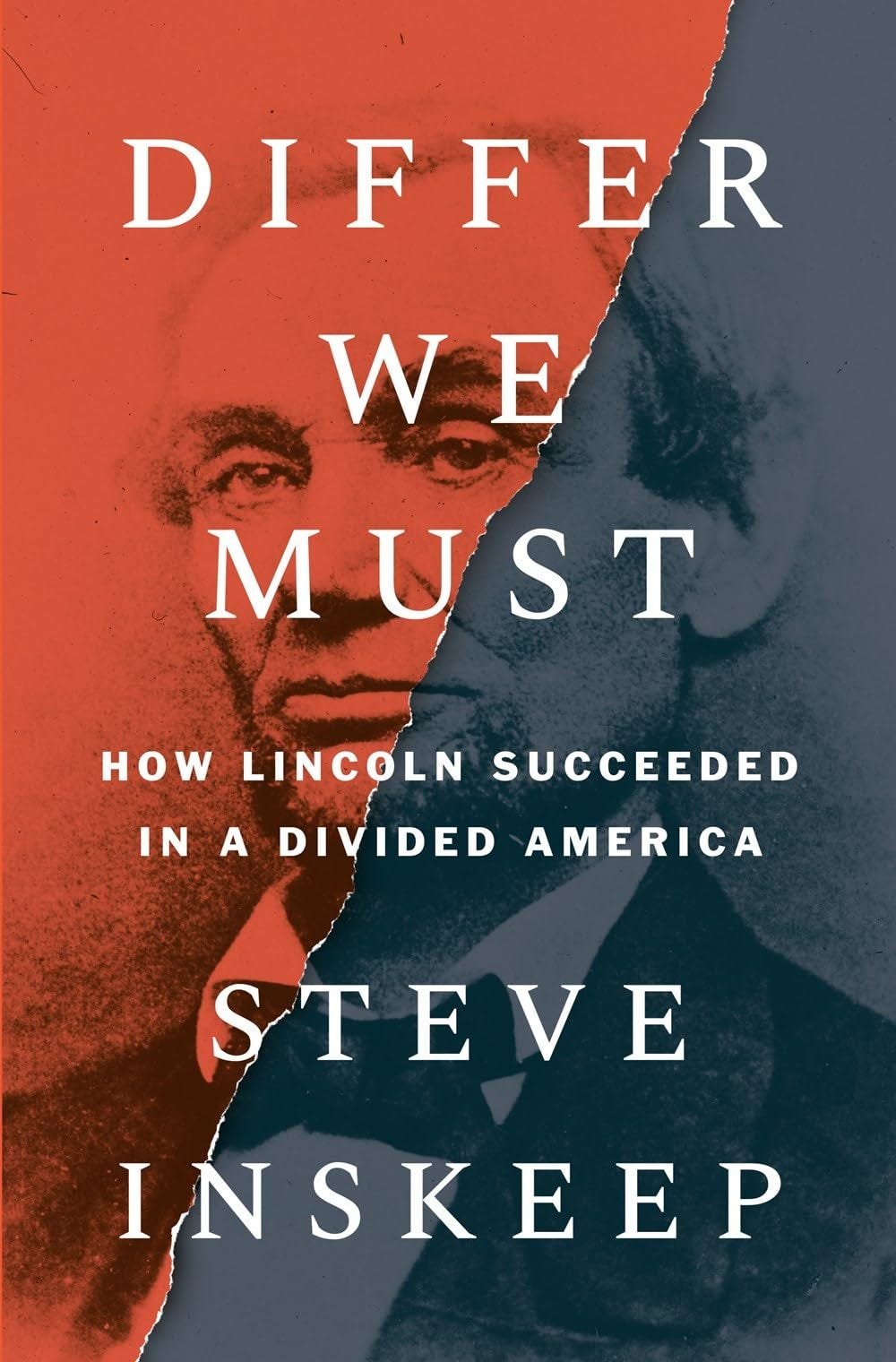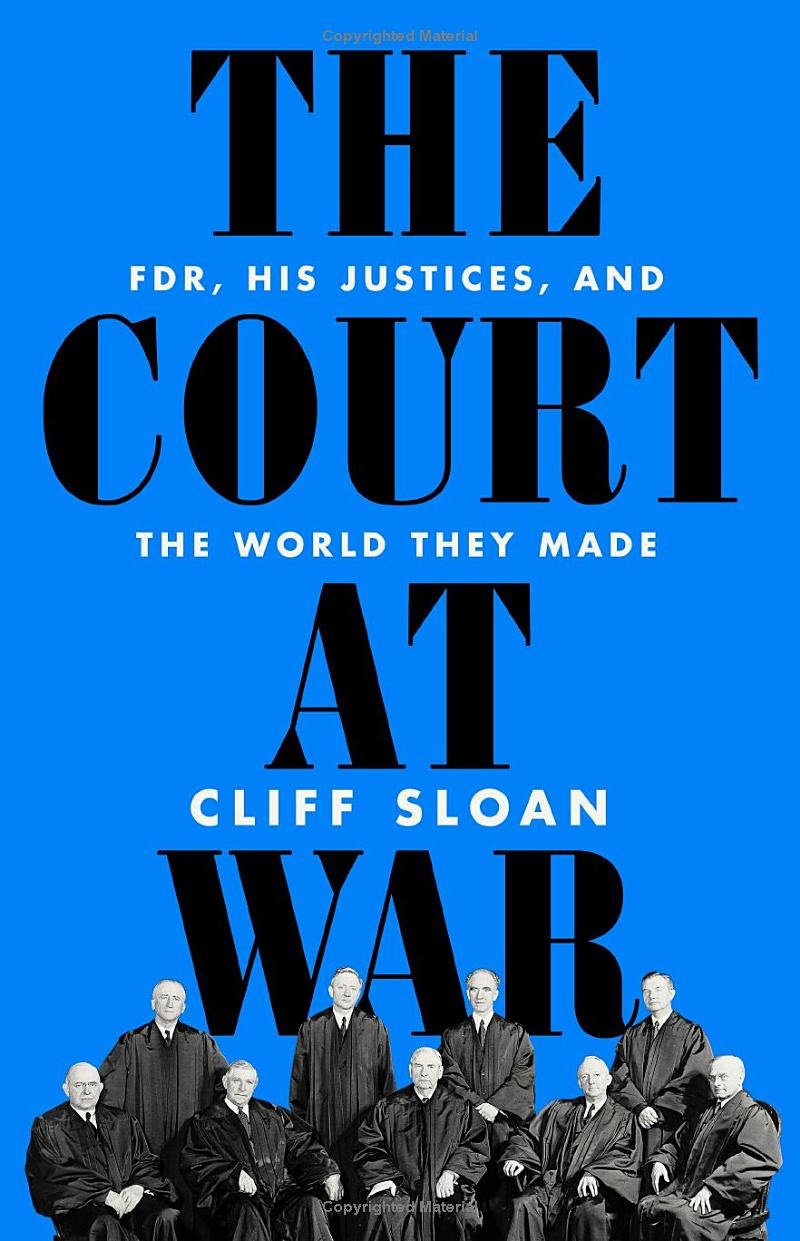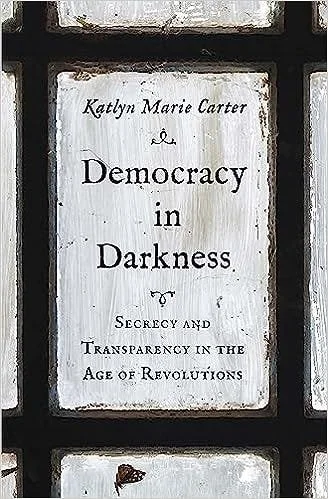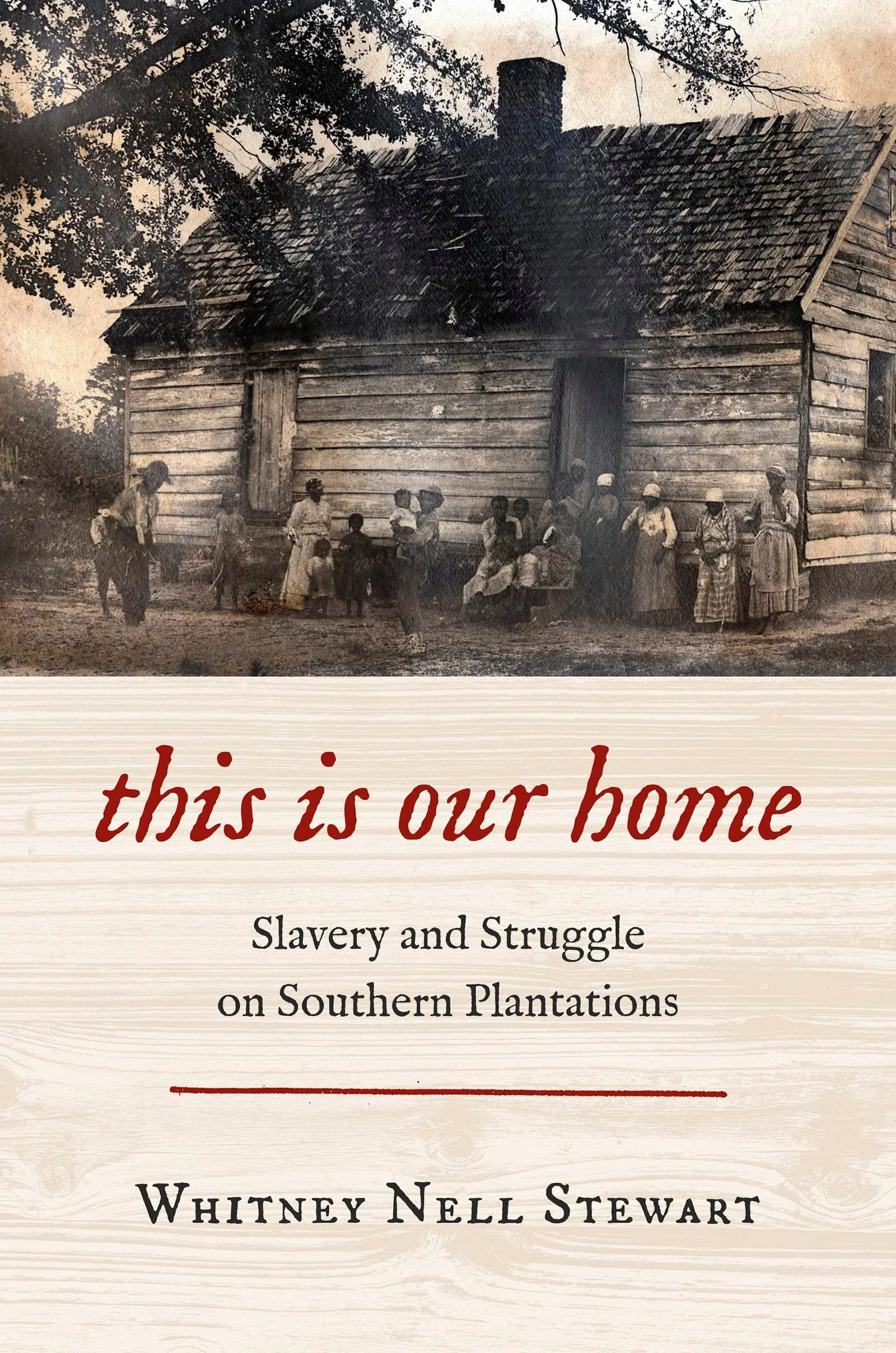Fostering Good-Faith History Debates
August 2023 Imperfect Union
Thanks for all your support and encouragement last month when I cut short my newsletter to focus on the book. The manuscript is with my editor, and I should have one last round of substantive edits before it goes into production (things like copyediting, page proofs, printing, etc.). The book should be out next August (roughly a year from now). I know that seems like a long lead time but with paper shortages, shipping delays, and all the steps required for publishing, that’s just how it goes. I have a title, but no cover image yet, so I’ll share those details when I can do so all at one time. Can’t wait to share more with you.
Last month, the same day my newsletter reached your inboxes, I was on a panel discussing history, Florida, and Ron DeSantis’s first book, Dreams from Our Founding Fathers. A couple of background notes worth considering. I think we proposed this panel in January, when the political polls suggested many different political outcomes in the Republican Party primary were possible. As news and politics have evolved in the last eight months, so too did our focus to include curriculum and reflections on the ground in Florida.
Second, I’m not hyperlinking the book because it’s nearly impossible to find. I believe it was published by a vanity press as part of DeSantis’s first congressional campaign, but it has been nearly erased from the market. Truly, it’s almost impossible to find a printed copy. And perhaps for understandable political reasons. The version of DeSantis contained between the covers of this book is a radical departure from the version we see on our televisions today. The Dreams from Our Founding Fathers DeSantis is a super “small c” conversative, coming up the ranks as part of the wave of Tea Party Republicans, largely in response to the election of Barak Obama. The argument is focused on economic issues, small government, health insurance, and of course, attacking Obama as a socialist or unpatriotic. These arguments are mostly out-of-date in today’s Republican Party.
My remarks for the panel were short, spoken, and not recorded, (plus I was very, very tired, and perhaps not my most coherent self). I wanted to take the opportunity to expand on them here, as I think my observations speak to a larger phenomenon in our cultural, history, and political wars of the moment.
The book is full of bad faith arguments, which my colleagues did a particularly good job outlining Like for example, Barak Obama’s father was an avowed socialist who spent a great deal of time fighting colonialism in Africa. Therefore, surely Obama inherited these traits through his bloodline since they spent little time together. There are plenty of reasonable critiques of Obama based in fact and opinion, that’s not one of them.
But as I was reading, I noted there were moments when DeSantis started down the path of a reasonable “small c” conservative argument based in history and policy, before making a connection that was nonsensical, at least in my opinion. For example, he wrote about Thomas Jefferson’s objection to the powerful executive and concerns about the Constitution before the ratification. He mentioned James Madison’s extensive study of political principles before the Constitutional Convention. He listed the arguments in favor of the federal government documented in the Federalist Papers. He then did silly things with that information, but the point is that there could have been a good faith, historically-based argument in favor of a conversative approach to government.
Allow me to expand on that point. As I’ve written before, and historians say repeatedly, the “founders” agreed on little. You don’t get cabinet rap battles in the Hamilton musical if Thomas Jefferson and Alexander Hamilton agreed on constitutional interpretation.
More seriously, there were two visions of what the nation should be and the role of the federal government in facilitating the growth of that vision. Hamilton preferred a stronger central government, one that facilitated trade, industrialization, and a strong military. He favored executive power over legislative when they were in conflict because the executive could act with alacrity and was unlikely to be fractured by faction. Because it served those goals, he preferred a close relationship with Great Britain and distrusted France.
Thomas Jefferson preferred a smaller federal government, leaving most of the power to the states with firm written protections for citizens. He believed the nation should be one of yeoman farmers, and the government should invest its limited resources supporting the growth of agriculture and husbandry, rather than invest in industry which focused on international growth and expansion. Trade was necessary for farming but should not be the central focus. Strong militaries posed a threat to the people and strong executives risked tipping into monarchy. Because it suited those goals, he distrusted Great Britain and preferred a friendship with France anchored in revolutionary ideas.
If Hamilton and Jefferson represented the two poles in the political spectrum, there were an infinite number of positions in between, occupied by the likes of George Washington, John Adams, James Madison, and more.
Neither side was right or wrong, although as a historian I can certainly make arguments about which side’s interpretation accorded more strictly on a specific point with the debates and intentions during the Constitutional Convention. And of course, we can all have opinions on which one was more prescient about the needs of the nation in the immediate moment and the future. They had different beliefs on how the Constitution should be interpreted and what was right for the nation. And this disagreement existed from the beginning, as evidenced by the emergence of the Antifederalists, a faction literally organized to oppose the ratification of the Constitution.
Dissent from the Antifederalist minority at the state ratification convention in Pennsylvania
More importantly, these camps shifted over time as the players lived through historic events, the Constitution evolved to meet the demands of governing, and political parties took shape. For more on the evolution of the Constitution, I recommend checking my book The Cabinet, especially chapter four, or The Second Creation by Jonathan Gienapp.
With that background in place, there is a historically based argument for conservative government that draws on Thomas Jefferson’s vision. Conservatives across the centuries, think Calvin Coolidge, Warren Harding, Herbert Hoover, have built on this foundation.
There is also a good-faith argument for adopting some principles of conservative government but tweaking it to fit the demands of the modern world. In this category, I’d put Dwight Eisenhower and Ronald Reagan, who favored a more limited government domestically, but spoke to the need for a strong military and muscular foreign policy, which doesn’t line up as neatly with the small c version.
Notably, Coolidge, Hoover, Eisenhower, and Reagan might have used the words of Jefferson to anchor their policies, but their agendas were based on their values and beliefs. Because there were two interpretations of the Constitution and the nation’s history from the beginning, no one can claim that their version is THE version.
I believe the nation is stronger when there are two healthy political parties (ideally, I’d like lots which would force more parliamentarian coalitions, but that’s a topic for another day). I believe the nation is better when both sides can use real historical examples and solid analysis to ground their beliefs on policy and values. That’s not happening right now.
Let me be clear, I don’t believe it’s the Democratic Party’s responsibility to fix the Republican Party, nor do I believe it’s historians’ responsibility to work with those who clearly have no interest in engaging in good-faith dialogue. But I also believe that both things are needed. So, I’m wondering how to accomplish those goals. How to empower a debate in which both sides can argue for their preferred course of action, while acknowledging the historical antecedents of the other.
I posed this question to the audience and received some excellent suggestions, including the importance of offline engagement. Showing up in our community and being real people at city council meetings, school boards, little league teams, girl scouts, etc. Interdisciplinary engagement was another suggestion, since there are pockets of conservative thinkers working in political science, economics, and international affairs. I think we also need to get comfortable with uncomfortable bedfellows. If the goal is to restore the health of our democracy such that we can return to policy debates, we can’t allow the policy debates to prevent coalition building.
I know this reading audience is not homogeneous in its political ideas and affiliations, but I think it could be broadly defined as pro-democracy (if not, I appreciate your reading, but you might not like my takes 😊). I’d very much like it to remain heterogeneous, so I welcome your ideas about we can better foster that type of conversation in our homes, communities, and our politics.
Books:
Currently Reading: Differ We Must: How Lincoln Succeeded in a Divided America by Steve Inskeep, out October 3, 2023.
Up Next: The Court at War: FDR, His Justices, and the World They Made by Cliff Sloan (September 19, 2023)
Coming Soon (ish): Democracy in Darkness by Katlyn Marie Carie (October 31, 2023)
On the Horizon: This Is Our Home: Slavery and Struggle on Southern Plantations by Whitney Nell Stewart (November 14, 2023)


